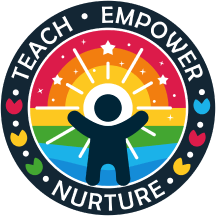Cultivating Gratitude in Children: A Guide for Parents and Educators
Introduction:
Gratitude is a powerful emotion that can significantly enhance a child’s well-being. Teaching children to appreciate the positive aspects of their lives can help them develop a more optimistic outlook and improve their emotional resilience. This blog will explore the importance of cultivating gratitude in children and provide practical tips for parents and educators to foster this essential life skill.
The Importance of Gratitude
Gratitude helps children focus on the positive aspects of their lives, which can improve their overall happiness and mental health. It encourages them to appreciate what they have rather than focusing on what they lack. Practicing gratitude can also enhance their relationships with others and foster a sense of empathy and compassion.
Practical Activities to Teach Gratitude
1. Gratitude Journals: Encourage children to keep a gratitude journal where they write down three things they are grateful for each day. This practice helps them reflect on positive experiences and develop a habit of gratitude.
2. Gratitude Letters: Suggest that children write letters to people they are thankful for. This activity helps them express their appreciation and strengthens their connections with others.
3. Gratitude Jar: Create a gratitude jar where children can drop notes about things they are thankful for. Review the notes together regularly to celebrate the positives in their lives.
Modeling Gratitude
Children learn by observing the adults around them. Parents and educators can model gratitude by expressing their own appreciation regularly. Share what you are grateful for during family meals or classroom discussions to demonstrate the importance of gratitude.
Benefits of a Gratitude Practice
Practicing gratitude has numerous benefits for children, including:
• Improved mental health and reduced stress levels.
• Enhanced empathy and social skills.
• Greater resilience in facing challenges.
• Increased overall happiness and life satisfaction.
Evidence Supporting Gratitude Practices
Research supports the positive impact of gratitude on children’s well-being. A study published in the Journal of Happiness Studies found that children who practiced gratitude experienced higher levels of happiness and life satisfaction. Additionally, gratitude practices have been shown to reduce symptoms of depression and anxiety in children.
Conclusion:
Cultivating gratitude in children is a valuable investment in their emotional and mental well-being. By incorporating simple gratitude practices into daily routines, parents and educators can help children develop a positive outlook on life. For more tips and resources on fostering gratitude and other positive mindsets, visit TEN-Teach Empower Nurture at www.tenyourmind.com.



